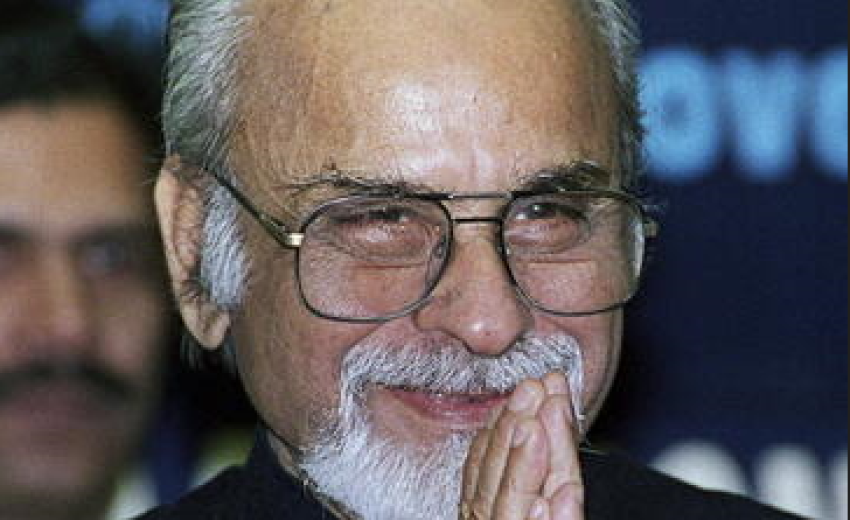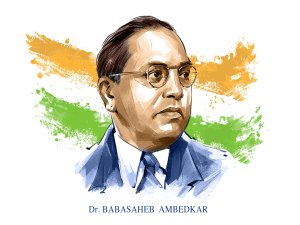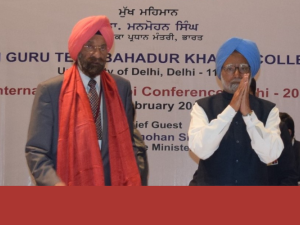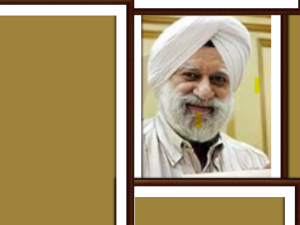It is now hard to believe that millions of people were uprooted from their homes during the Partition of Punjab when India got Independence from British rule in 1947. It is estimated that half a million people lost their lives and about ten million were displaced. Among the refugees who came to India from Pakistan were two luminaries who later got the unique honour of becoming Prime Minister of Independent India– Inder Kumar Gujral and Dr. Manmohan Singh. It is a matter of coincidence that both of them were from the Jhelum district of Punjab. I always take pride in the fact that my family also belongs to this district.
Inder Kumar Gujral was born on December 4, 1919 in a Punjabi Khatri family in the village of Pari Darweza of Jhelum district. Gujral’s father, Sh. Avtar Narain was a leading lawyer and a freedom fighter. Gujral graduated from FC College Lahore and was an active member of All India Students Federation. He went to jail in 1942 during the Quit India Movement. He married Sheila Gujral who became an acclaimed poet in Hindi. The world-famous painter and sculptor, Satish Gujral was his younger brother. Gujral started some business in Delhi and soon became very close to Indira Gandhi, the daughter of Pandit Jawahar Lal Nehru, the first Prime Minister of India.
Gujral became the Vice President of the New Delhi Municipal Committee in 1958; and later, in 1954 he became a Member of Parliament (Rajya Sabha). When Mrs. Indira Gandhi became the Prime Minister, Gujral was a part of her Cabinet and was made the Minister of Information and Broadcasting. He showed exceptional courage and integrity when he opposed the censoring of newspapers imposed by Indira Gandhi during the Emergency in 1975 and sacrificed his post as Cabinet Minister. Later, he was appointed India’s Ambassador to Moscow which gave him a platform to hone his expertise in international relations.
I had the pleasure of meeting him there during the Moscow Olympic Games in 1980 and was able to appreciate his success as a diplomat. He continued serving in the same capacity even when Sh. Morarji Desai became the Prime Minister of India. After coming back to Delhi after his stint in Moscow, he quit the Congress Party and joined the Janta Dal. He was elected a Member of Parliament from Punjab in 1989. He served as the External Affairs Minister in Sh. V.P. Singh’s Cabinet and emerged as a successful negotiator during many crises. He went to Kuwait to evacuate a large number of Indians after the Iraq invasion. He was also instrumental in negotiating a settlement with the kidnappers of Rubaiya Sayeed, the daughter of the then Home Minister, Mufti Mohammad Sayeed, in Srinagar in 1989.
In 1996, when a United Front Government was formed under Sh. H.D. Deve Gowda, Gujral again became Foreign Minister. Due to internal political crisis, the Prime Minister had to be changed and Inder Kumar Gujral emerged as the consensus candidate for the post after discussion among all the parties. He was requested to accept the post of Prime Minister and he readily accepted the challenge. It was an opportunity for him to prove that it was a new phase in the democratic evolution of the country. Perhaps it was for the first time that true federalism was being worked out in real terms. He introduced the Gujral Doctrine which is a set of five principles to guide the conduct of foreign relations with India’s immediate neighbours, notably Pakistan. He was in favour of total peace with all immediate neighbours.
At that point of time, to have a Prime Minister of India who was a Punjabi was important for another reason as well. For the first time, India had a Punjabi, and a Partition refugee, to helm the country and to deal with Pakistan. In fact, no one could have been more at ease and at his natural best while interacting with Pakistani Muslims. He had an enviable command on Urdu language and could quote Urdu poetry with such felicity that it would evoke a responsive chord in every heart in Pakistan. He was convinced that these two young nations could, and would, fulfill their ‘tryst with destiny’ only by burying the hatchet of mutual enmity and distrust. He left no stone unturned in his efforts to achieve this end.
It was he who provided a huge financial grant to the state of Punjab which was suffering a financial crisis due to the 1984 Blue Star Operation in Punjab. The people of Punjab reciprocated his love and affection and the Technical University at Jalandhar was named as I.K. Gujral University. The Science City at Jalandhar has been named after his mother, Pushpa Gujral. He was again elected a Member of Parliament from Jalandhar in 1998. His son, Naresh Gujral, was an Akali member of the Rajya Sabha three times and maintained the Gujral legacy in the right spirit.
When the Punjab problem monopolized the attention of the nation to a large extent during the 1980s, he came forward to form a ‘Punjab Group’ to put forward the case of Punjab. He was able to get the cooperation of people like the leading journalist, Kuldip Nayyar, Air Chief Marshal Arjan Singh, General Jagjit Singh Arora, and diplomat and Ambassador, Gurbachan Singh. When there was large-scale massacre of the Sikhs after the assassination of Prime Minister, Mrs. Indira Gandhi, this group of diehard Punjabis knocked the doors of the government. As a matter of fact, these two Punjabis – Inder Kumar Gujral and Kuldip Nayyar had an amazingly constructive approach to the whole political and social imbroglio. So much so, that I often stress the point on every platform that if we had another handful of Punjabis like this twosome there would have been no Punjab problem at all!
Gujral was such a multi-faceted personality, that not even an entire book on him can suffice to do justice to his persona. As an elder intellectual and parliamentarian of the nation, he rubbed shoulders with some of the best minds of the world, even at a one-to-one level. But he wore his greatness so very lightly that he had friends and well-wishers from every walk of life. In fact, it was his boundless human empathy that made him so winsome in any situation that one can possibly comprehend. He remained very popular in all intellectual gatherings and always had something of a value to communicate.
He remained very active as a Member of Parliament even during Sh. Atal Bihari Vajpayee’s term as the Prime Minister. He wrote Matters of Discretion: An Autobiography which was like a film on all the events in India starting from 1945. He remained very popular in the intellectual circles and kept his interest in his home State Punjab. Sh. Gujral after brief illness passed away on 30th November 2012 four days before his 93rd birthday in Dehli.
SikhNet is honored that Sardar Tarlochan Singh ji, EX-MP, Former Chairman National Commission Minorities, India is sharing his personal recollection of historical events with our audience.
The opinions expressed here are personal to the author and do not necessarily reflect an editorial position of the SikhNet staff or board.





